Upper Valley communities say Supreme Court ruling won’t change approach to homelessness
|
Published: 07-12-2024 6:01 PM
Modified: 07-15-2024 11:00 AM |
HARTFORD — A recent U.S. Supreme Court ruling allowing communities to arrest and fine people for sleeping outside in public spaces has drawn the ire of Upper Valley social services providers and skepticism from local law enforcement and municipal officials.
The ruling applies to sleeping outdoors any time of day or night and allows for punishment even when no shelter spaces are available.
The Supreme Court decision arose from a case in Grants Pass, Ore., but has had a ripple effect across the country. In New Hampshire, Manchester moved quickly following the decision, enacting a policy last week to ban camping in public spaces and grant police the discretion to issue tickets that carry fines up to $250 for violations.
“All of us who work in the field of providing housing and shelter are concerned by the decision,” Michael Redmond, executive director of the Upper Valley Haven, said Thursday.
The punitive latitude that the Supreme Court’s ruling in the City of Grants Pass v. Johnson gives municipalities is counterproductive, Redmond said.
“Unpaid fines can lead to warrants for arrest,” he said. “People having arrest records or unpaid fines is no way forward to a solution.”
Some Upper Valley municipal leaders say the Supreme Court ruling is a non-issue, and won’t impact interactions between law enforcement and unhoused people. But the region is not immune to the challenges of homelessness, a scarcity of resources to address it and the tension between trying to protect public property while addressing the basic human need for shelter.
The court’s decision “doesn’t really change anything for us,” Lebanon City Manager Shaun Mulholland said Tuesday. Lebanon will not be fining or arresting people for sleeping outside, he said.
Article continues after...
Yesterday's Most Read Articles
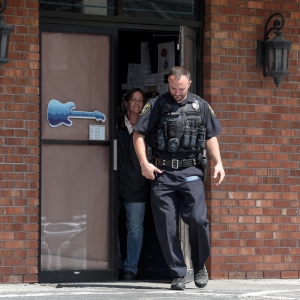 After more than 45 years, Upper Valley guitar shop closes
After more than 45 years, Upper Valley guitar shop closes
 On the trail: Gov. Ayotte says she delivered on her promises in her 100 days in office. Not everyone agrees
On the trail: Gov. Ayotte says she delivered on her promises in her 100 days in office. Not everyone agrees
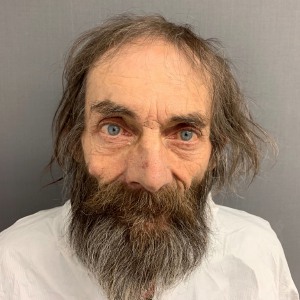 Newbury,Vt., man who killed daughter ruled to be ‘not guilty by reason of insanity’
Newbury,Vt., man who killed daughter ruled to be ‘not guilty by reason of insanity’
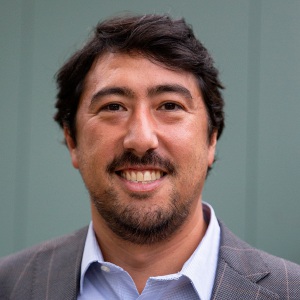 Claremont City Council votes unanimously to fire city manager
Claremont City Council votes unanimously to fire city manager
 Hundreds of alumni sign letter urging Beilock, Dartmouth to make a stand for academic freedom
Hundreds of alumni sign letter urging Beilock, Dartmouth to make a stand for academic freedom
 Fill ’er up: New Hampshire considers allowing patrons to pour their own alcohol
Fill ’er up: New Hampshire considers allowing patrons to pour their own alcohol
“We don’t have the same problem as Manchester with people sleeping on sidewalks,” he said.
In the Hartford region, there are about 100 people in state-funded motel rooms, 24 of them children, Redmond said. The Haven currently houses 36 people in its two Hartford shelters, which is just shy of their capacity. And though it’s more difficult to quantify the number of people who are without shelter, “about 12 people come and take a shower every day, which tells me there are 12 people living outside,” Redmond said.
This past winter, the Haven managed a temporary shelter on Mechanic Street in Lebanon, which was used by 53 different people for at least one night, Redmond said. That number roughly aligns with a point-in-time count in January, which showed that 47 people in Lebanon lacked permanent shelter.
The unhoused population in the Upper Valley is often less visible than in more populated regions because overnight camping tends to be dispersed and remote. Still, encampments can sometimes create public health and safety issues.
In 2016, a makeshift campground of about a dozen people in a city lot behind a Hannaford supermarket on Route 12A in West Lebanon led the City Council to pass an ordinance prohibiting overnight stays on any city property. Similar to opponents of the Grants Pass decision, critics of the 2016 ordinance argued that banning overnight sleeping on public property amounted to criminalizing homelessness.
“The ordinance does allow for $100 fines, but to my knowledge, there have been no citations issued since the ordinance was issued,” Lynne Goodwin, the city’s director of human services said Friday. “The way we have been enforcing it is from a compassionate, service-oriented approach rather than a punitive approach.”
People are usually told to move along and are given contact information for social services, Goodwin added.
In Vermont, Bradford’s public library struggled last summer to balance its role as a resource provider for the unhoused with the need to create a safe and welcoming space for its patrons.
“Last year, we really experienced an influx, and there were problems,” Library Director Gail Trede said Tuesday. “People were defecating in the yard, setting up tents on the porch, and hanging laundry to dry. Patrons were afraid to come to the library,” she said.
“It was frightening for some of us,” she added.
The library worked with town officials and police to find a solution. The town cleared the brush from a vacant lot across the street to make it more visible and less attractive as a camping spot, Trede said, and the police increased their patrols around the library building.
But the library staff refused to go along with the town’s suggestion that it shut off access to water and a picnic table where people could access the library’s 24/7 WiFi. “These folks are your neighbors,” Trede said.
This summer, the library has been “calm, but very busy,” Trede said, with people coming in especially to use the internet, printing and scanning services, and for help with applications for jobs and housing.
Overnight encampments have not been an issue, and people are more comfortable using the library. Trede isn’t sure what changed. “It’s really crazy. All of a sudden it’s not a problem. I have no idea why,” she said.
In Hartford, there are no plans to fine or arrest people for sleeping outside, Selectboard Chairman Mike Hoyt said Wednesday.
Typically, when accumulations of trash and waste present a challenge to public health and safety, town officials will take a “move along” approach, offering to connect people with social services but ultimately requiring only that they leave the location, Town Manager John Haverstock said in an interview this week..
“Hartford has tried to take a compassionate and supportive approach to these populations,” Haverstock said. “We don’t wish to demonize anyone.”
But even when there is space in a shelter, such as those provided by the Haven, some people avoid them because of sobriety requirements or rules against dogs.
The Haven is in the fundraising stage of a plan to open a 20-bed “low-barrier” shelter in White River Junction that would allow dogs and would not require sobriety as a condition of admission.
Low-barrier shelters operate on the principle of harm-reduction, Redmond said. Bringing people inside is safer, helps build trusting relationships and “if you’re with us in the morning, we have a better chance of connecting you with systems,” he said.
The challenge of balancing compassion with the need for public safety is familiar to Windsor Country Sheriff Ryan Palmer.
“There’s no point in arresting people instead of getting them help,” Palmer said. “It doesn’t make sense in a lot of scenarios. Why are we arresting someone who is just trying to live?”
Still Palmer understands some of the concerns behind the Supreme Court ruling. His department wants people struggling with homelessness to get the help they need, but at the same time the public “shouldn’t be afraid to walk down the street,” he said.
The factors that make someone homeless are complex, he said, and require that his department take a nuanced approach when a law-enforcement response is needed.
“We try to help as best we can and sometimes there isn’t a good answer and that’s frustrating,” Palmer said.
Christina Dolan can be reached at cdolan@vn ews.com or 603 727-3208.











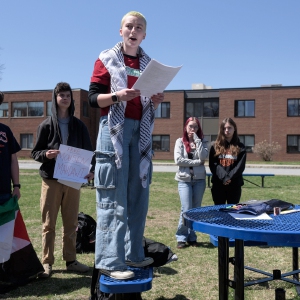 Activist with Upper Valley ties remains detained in Vermont with a hearing set for next week
Activist with Upper Valley ties remains detained in Vermont with a hearing set for next week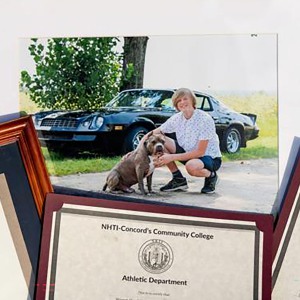 NH 21-year-old dies amid the worst flu season since 2009
NH 21-year-old dies amid the worst flu season since 2009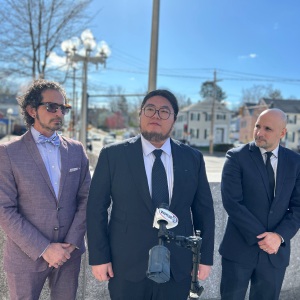 ‘A bit Kafkaesque’: Federal judge spars with government lawyer over status of Dartmouth international student
‘A bit Kafkaesque’: Federal judge spars with government lawyer over status of Dartmouth international student
